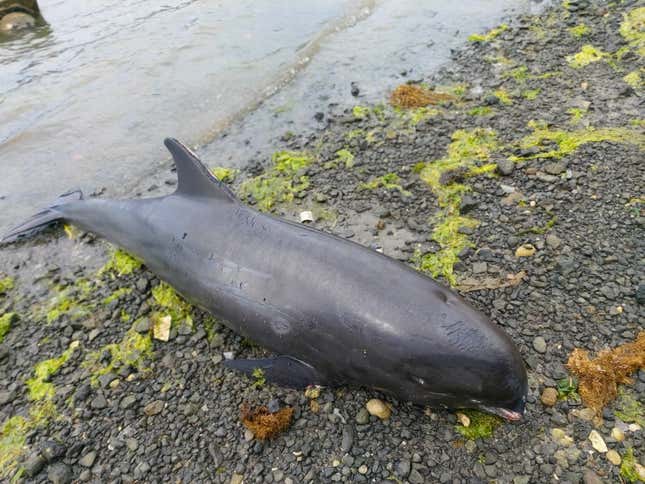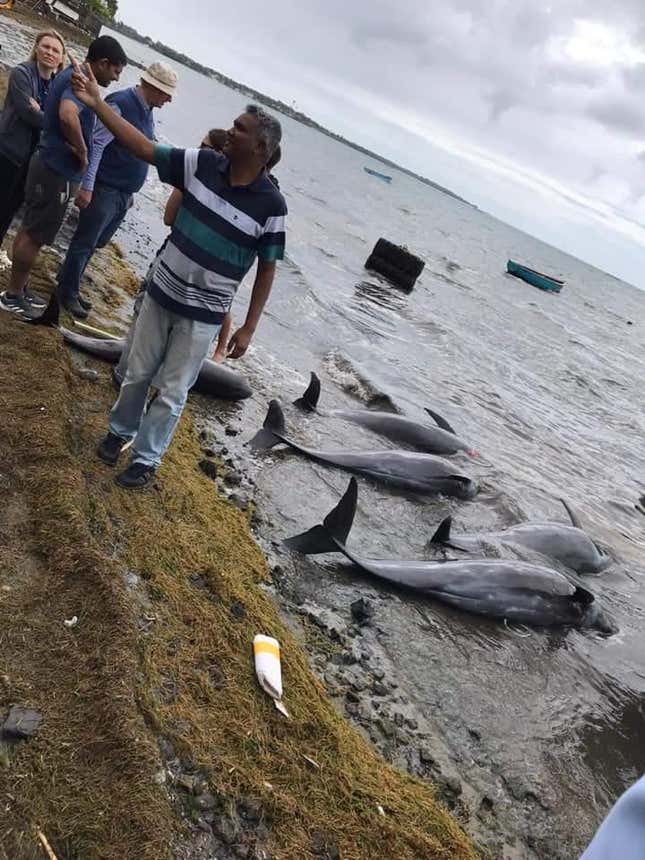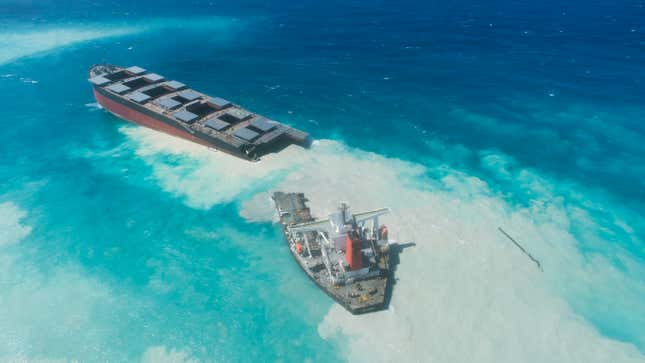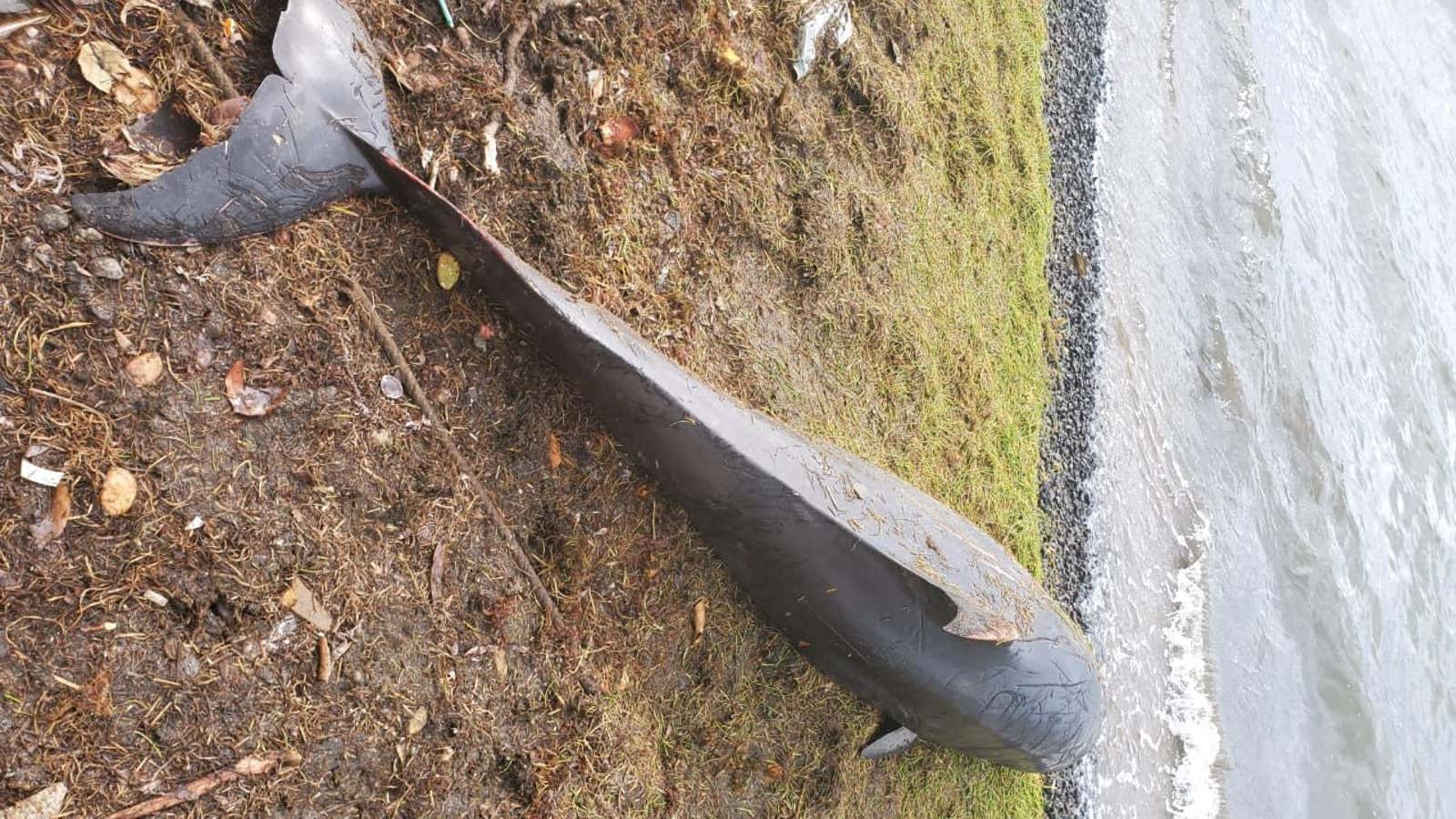On the morning of Aug. 26, residents of Mauritius’s Southeast region discovered several stranded dolphins close to the site of the oil spill from the Japanese vessel MV Wakashio, which ran aground on July 25 causing what some scientists have described as the worst ecological disaster in the Indian Ocean.
Greenpeace has confirmed four dolphins were found dead and says four others are in critical health. Wire agencies reported up to 17 dead dolphins were found and the environmental group fears more marine life could be at risk.
“It is very likely that there are more who have died and we expect more to be found dead and ailing,” said Tal Harris, International Communications Coordinator for Greenpeace Africa. The organization is demanding an urgent investigation to determine the cause of the deaths and any ties to the Wakashio oil spill.

“The dead dolphins had several wounds and blood around their jaws, no trace of oil however,” Jasvin Sok Appadu from Mauritius’ fisheries ministry told Reuters. They have been transported to the Albion Fisheries Research Center for analysis.“The ones that survived, around 10, seemed very fatigued, and could barely swim,” he added.
The environmental conservation group, Globice, says it is too early to say if there is a direct connection between the discoveries and the oil spill. “The precise causes of this stranding cannot be formally established without resorting to autopsies which will make it possible to precisely determine the fatal injuries to the animals,” it said on its Facebook page. “It is too early at this stage to conclude that there is a direct link with the sinking or scuttling of the Wakashio, which remains a hypothesis to be investigated.”
Environmental scientists note aquatic mammals including dolphins, sperm whales, and porpoises are already under significant threat from a mix of environmental challenges including climate change, plastic pollution, illegal fishing, and habitat loss. Greenpeace says a major oil spill could have long-term impact.

Less than two weeks after the Panamanian-flagged Wakashio struck the pristine coral reef of Pointe d’Esny, endangering countless marine life and local livelihoods, the ship’s hull began leaking fuel into the waters of the Mahebourg Lagoon, a prime snorkeling spot in Mauritius. On Aug. 15 the ship broke into two and has so far spilled at least 1,000 tons of oil into the Indian Ocean.
Greenpeace Africa, Greenpeace Japan, and the Mauritius human rights organization, Dis Moi, wrote an open letter to the government on Aug. 24 calling for an independent scientific assessment of the affected ecosystems, an investigation of the disaster’s impact on livelihoods and a public independent inquiry into the cause of the crisis.

The captain and chief officer of the ship were arrested in mid-August. Crew members claim the captain was possibly away from the cabin celebrating his birthday when the vessel ran aground. He has since been charged under Mauritian maritime laws with endangering the safe navigation of a vessel.
The scale of the damage has yet to be determined as well as its impact on Mauritius’s tourism-dependent economy. Tourism in Mauritius—a popular destination owing to its pristine beaches – reportedly contributed about $1.6 billion to its economy in 2019.
“The ocean is part of who we are. The whole country including coastal communities depend on its health,” said Vijay Naraidoo, co-director of Dis Moi. “That is why many Mauritians woke up anguished and afraid that the oil spill may be killing it. Such biodiversity loss is an ominous development for what might come as a result of the oil spill.”
Sign up to the Quartz Africa Weekly Brief here for news and analysis on African business, tech, and innovation in your inbox
